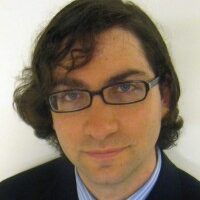Assistant Professor of Medicine
Harvard Medical School, Brigham and Women's Hospital
Benjamin Freedman, PhD, studies the role of PKD and ciliopathy disease genes in pluripotent stem cells and their somatic descendant cells. He has many years of first-hand experience with iPSC derivation and culture, differentiation of human pluripotent stem cells, teratoma formation assays, and genome modification. Dr. Freedman’s laboratory is funded from young investigator grants from NIH (NIDDK) and NKF. Dr. Freedman has unique experience generating iPSCs from PKD patients and performing disease modeling experiments with these cells in the kidney lineage. He has identified a specific and disease-relevant phenotype in ADPKD iPSCs, and has also published techniques to differentiate iPSCs into kidney progenitor cells.

